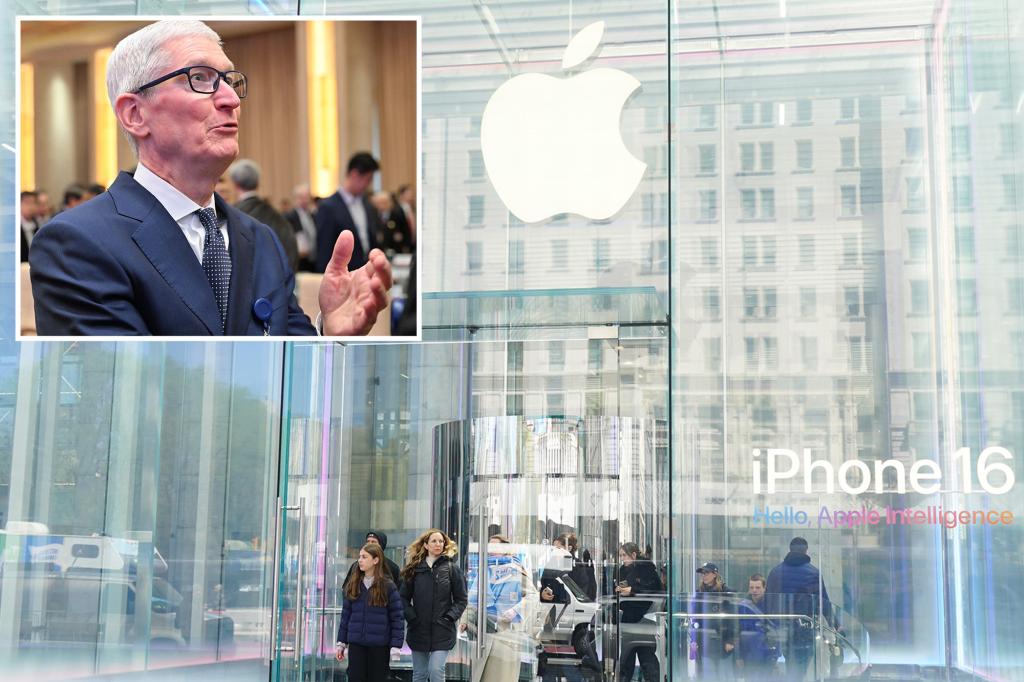Apple is facing mounting legal trouble after a federal judge issued an order demanding the company explain its refusal to comply with a court injunction stemming from its high-profile antitrust dispute with Epic Games.
In a sharply worded order issued on Monday, US District Judge Yvonne Gonzalez Rogers directed Apple to appear in court and justify why it should not face sanctions for allegedly violating the 2021 injunction that required it to ease App Store restrictions on third-party developers.
“Obviously, Apple is fully capable of resolving this issue without further briefing or a hearing,” the judge wrote on Monday.
The order, filed in the US District Court for the Northern District of California, demands that an Apple official “personally responsible for ensuring compliance” appear in court on May 27 “if the parties do not file a joint notice that this issue is resolved…”
The order follows a motion from Epic Games seeking to enforce the original injunction, which mandated that Apple allow developers to include external links or buttons in their apps to facilitate alternative payment methods, bypassing Apple’s in-app purchase system.
According to Judge Rogers, Apple has failed to honor the terms of that ruling and continued to impose conditions on developers that undermine the court’s intent.
“This is an injunction, not a negotiation,” she wrote in a separate ruling last week. “There are no do-overs once a party willfully disregards a court order.”
The judge’s criticism extended to Apple CEO Tim Cook, who she said rejected internal recommendations to comply with the injunction.
“Internally, Philip Schiller had advocated that Apple comply with the Injunction,” Rogers wrote. “But Tim Cook ignored Schiller and instead allowed Chief Financial Officer Luca Maestri and his finance team to convince him otherwise. Cook chose poorly.”
Rogers also accused Apple’s vice president of finance, Alex Roman, of lying under oath during the trial.
“To hide the truth… Roman… outright lied under oath,” she wrote, adding that Apple “adopted the lies and misrepresentations to this Court.”
The judge’s latest order gives Apple until Wednesday to file a response explaining why Epic’s motion to enforce the injunction should not be granted.
Any reply from Epic must be submitted by Friday.
If the parties do not reach a resolution and fail to jointly notify the court, the Apple official named in the filing must attend the hearing in person at the Oakland federal courthouse.
Apple earlier this month responded with a brief statement saying, “We strongly disagree with the decision. We will comply with the court’s order and we will appeal.”
The dispute dates back to 2020, when Epic Games, the maker of “Fortnite,” sued Apple for allegedly monopolistic practices related to its App Store.
In 2021, Judge Rogers largely ruled in favor of Apple but issued a key injunction barring the company from preventing developers from informing users of alternative payment options. That injunction is now at the center of the latest legal firestorm.
According to the court, Apple devised a 27% commission fee for purchases made outside its ecosystem — one that was allegedly calculated to exceed any costs developers might incur using third-party payment methods.
Roman falsely testified that Apple had not evaluated those costs, but internal documents showed otherwise.
The judge also found that Apple had already finalized its external purchase fee structure by July 2023, contradicting Roman’s sworn testimony that the policy wasn’t finalized until January 2024.
The order to show cause adds to the pressure Apple is under, as Judge Rogers has referred the matter to the US Attorney’s Office for potential criminal contempt charges against the company and individuals involved.
Epic Games CEO Tim Sweeney welcomed the decision.
“It’s a huge victory for developers,” he said. “This forces Apple to compete. This is what we wanted all along.”
The upcoming hearing on May 27 could be a pivotal moment for Apple as it navigates intensifying scrutiny over its App Store practices and executive conduct.
The Post has sought comment from Apple and Epic Games.


